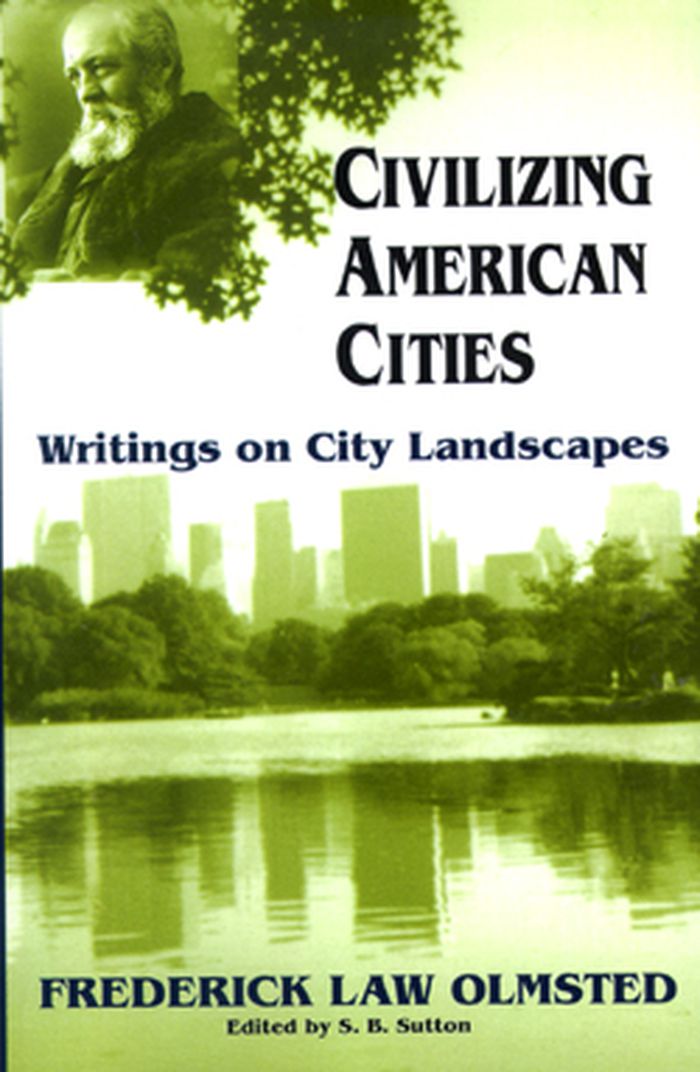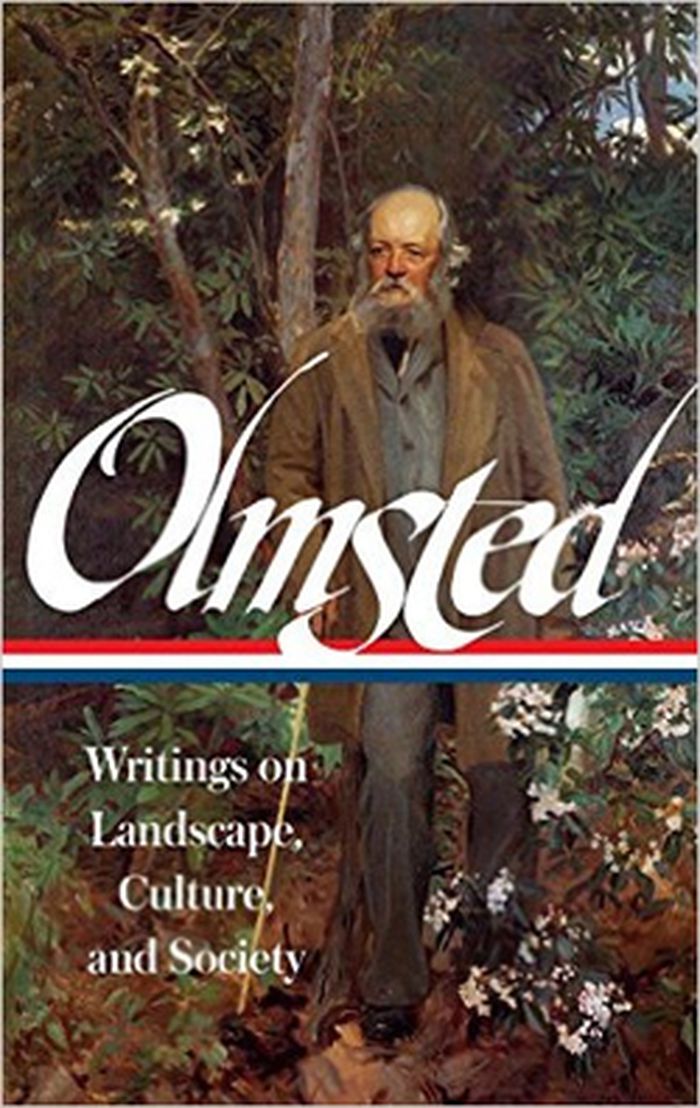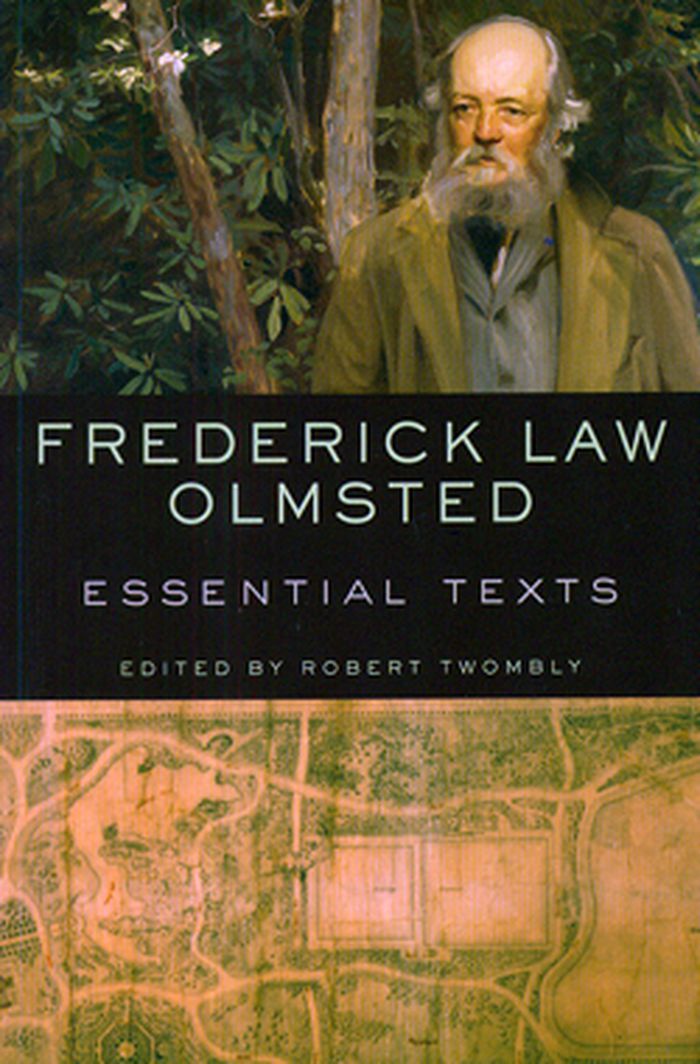$17.95
(disponible sur commande)
Résumé:
Frederick Law Olmsted (1822-1903) designed New York City's Central Park, Brooklyn's Prospect Park, Chicago's South Park and Jackson Park, Montreal's Mount Royal Park, the park systems of Boston and Buffalo, and many others. But Olmsted's concerns extended beyond the hills and lakes, the flora and fauna of the park: he also designed parkways and neighborhoods, reshaping(...)
Civilizing american cities: writings on city landscapes
Actions:
Prix:
$17.95
(disponible sur commande)
Résumé:
Frederick Law Olmsted (1822-1903) designed New York City's Central Park, Brooklyn's Prospect Park, Chicago's South Park and Jackson Park, Montreal's Mount Royal Park, the park systems of Boston and Buffalo, and many others. But Olmsted's concerns extended beyond the hills and lakes, the flora and fauna of the park: he also designed parkways and neighborhoods, reshaping cities around their parks. He thus reinvented the American urban landscape as a democratic outdoor setting that encouraged a new kind of participation in city life. Olmsted was one of the most gifted of American writers of his generation: prior to designing Central Park, he had written five important books, including The Cotton Kingdom (an account of his travels in the slave states, also available from Da Capo Press); and his writings on American landscapes are unfailingly lively, eloquent, and passionate. Civilizing American Cities collects Olmsted's plans for New York, San Francisco, Buffalo, Montreal, Chicago, and Boston; his suburban plans for Berkeley, California and Riverside, Illinois; and a generous helping of his writings on urban landscape in general. These selections, expertly edited and introduced, are not only enjoyable but essential reading for anyone interested in the history - and the future - of America's cities.
Jardins
$58.00
(disponible sur commande)
Résumé:
Frederick Law Olmsted (1822–1903) is most often remembered as America’s preeminent landscape architect, a profession he named, helped to define, and elevated into an art form in beloved parks and public spaces. Gathering over 100 items—letters, travel sketches, newspaper articles, essays, editorials, design proposals, official reports, and autobiographical(...)
décembre 2015
Olmstead: writings on landscape, culture and society
Actions:
Prix:
$58.00
(disponible sur commande)
Résumé:
Frederick Law Olmsted (1822–1903) is most often remembered as America’s preeminent landscape architect, a profession he named, helped to define, and elevated into an art form in beloved parks and public spaces. Gathering over 100 items—letters, travel sketches, newspaper articles, essays, editorials, design proposals, official reports, and autobiographical reminiscences—this volume charts the emergence and development of Olmsted’s vision of restorative public green spaces as an antidote to the debilitating pressures of urbanization and modern life.
$31.00
(disponible sur commande)
Résumé:
Sixteen selections, dating from the 1850s to the 1890s, reveal Frederick Law Olmsted’s youthful interests as well as his mature thinking on cities, small residential sites, the history and theory of urban parks, and landscape architecture in general.
Frederick Law Olmstead: Essential texts
Actions:
Prix:
$31.00
(disponible sur commande)
Résumé:
Sixteen selections, dating from the 1850s to the 1890s, reveal Frederick Law Olmsted’s youthful interests as well as his mature thinking on cities, small residential sites, the history and theory of urban parks, and landscape architecture in general.
Théorie du paysage


